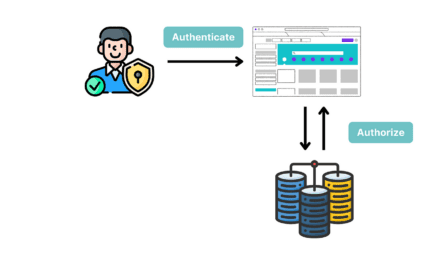Keeping up with the latest developments in technology is not only a must but also a choice in the quickly changing world of full-stack development. For developers hoping to stay ahead of the constantly shifting demands of the market, never-ending education is essential to success.
A wide range of expertise is covered by full stack development, including front-end technologies like HTML, CSS, and JavaScript as well as back-end technologies like databases, server-side scripting, and server administration. Professionals need to have an attitude of constant learning to flourish in this dynamic field. They need to improve their current abilities and learn new ones to be competitive and relevant.
The Dynamics of Full Stack Development
In full-stack development, front-end and back-end technologies are integrated to produce a fully functional application. Front-end development is concerned with the user interface and user experience; it calls for knowledge of HTML, CSS, and JavaScript, among other technologies. On the other hand, back-end development calls for familiarity with frameworks like Node.js or Django as well as languages like Python, Ruby, or Java. It also entails server-side scripting, database management, and server administration.
The dynamic nature of Full Stack Development stems from the swift advancement of technologies in these two domains. Regular releases of new frameworks, libraries, and tools give developers better capabilities and more productive workflows. To fully utilize these developments and provide state-of-the-art solutions, this ongoing evolution demands ongoing learning.
The Role of Continuous Learning
1. Adaptability and Innovation:
In the tech business, adaptability is a critical trait that is fostered by continuous learning. As project needs change, developers must quickly adjust to new tools and techniques. Continuous learning also promotes innovation by allowing developers to approach their work with new perspectives and ideas. Being flexible and having an inventive mentality is essential for succeeding in the cutthroat world of full-stack development.
2. Skill Diversification:
Whole Stack A broad skill set encompassing both front-end and back-end technologies is required of developers. By diversifying their skill set through ongoing learning, they may stay adaptable and competent in managing many facets of development. For instance, a developer could learn about contemporary JavaScript frameworks like React or Vue to improve their front-end skills, or they could learn about serverless architecture and containerization with tools like Docker to improve their back-end skills.
3. Keeping Pace with Frameworks and Tools:
The ecosystem of full-stack development is full of tools and frameworks that streamline and improve the development process. Keeping up with the most recent releases and updates in these technologies requires constant learning. Keeping up with the latest developments in database management systems and front-end frameworks guarantees that developers can take advantage of the most effective tools out there, whether it’s a new version of the latter.
4. Embracing Best Practices:
Coding, security, and performance best practices are always changing as technology advances. By keeping up with these best practices, developers can ensure that their apps are high-quality, safe, and performant while also adhering to industry standards. This is made possible by continuous learning. The developer’s reputation is enhanced and their projects are generally successful as a result of their dedication to excellence. You can opt for a Full-stack development program in Delhi, Noida, Lucknow, Pune and other parts of India.
Strategies for Continuous Learning in Full-Stack Development
1. Online Courses and Tutorials:
A wealth of educational resources can be found on the internet. Numerous Full Stack Development courses are available on platforms like Coursera, Udemy, and Khan Academy. These classes address a broad range of subjects, from fundamental ideas to sophisticated methods. Developers can select courses according to the particular topics they wish to investigate or hone in addition to their present skill level.
2. Interactive Coding Platforms:
Codecademy and freeCodeCamp are two interactive coding tools that offer practical experience and instantaneous feedback. These systems provide gamified learning opportunities, which add fun and interest to the process. Developers can work on projects, practice code, and get immediate feedback, which improves their theoretical understanding and practical abilities.
3. Contribute to Open Source Projects:
A great method to practice and hone your Full Stack Development skills is to actively participate in open-source projects. Developers can work with other experts, obtain real-world experience, and get helpful criticism by participating in real-world projects. In addition to expanding their knowledge, this practical method creates a portfolio that highlights their skills to prospective employers.
4. Attend Conferences and Meetups:
For ongoing learning, networking and maintaining ties with the development community are essential. Attending conferences, meetups, and webinars gives you the chance to talk with business leaders, identify new trends, and have insightful conversations. Additionally, these gatherings give developers a chance to present their work, get inspiration, and make important relationships with other members of the community.
5. Read Documentation and Blogs:
A crucial part of remaining up to date is reading the official documentation for frameworks, libraries, and application tools. Additionally, developers can stay up to date on community conversations, best practices, and the most recent improvements by subscribing to tech blogs, newsletters, and forums. One way to remain ahead of the curve and access collective knowledge is to maintain connections with the larger development community.
6. Engage in Side Projects:
Side projects offer a sandbox for trying new things and using newly acquired abilities. Building a personal website, making a mobile application, or establishing a web tool are examples of side projects that provide a low-risk setting for experimenting with new technologies and approaches. The practical experience obtained through side projects makes a substantial contribution to confidence and skill development.
Overcoming Challenges in Continuous Learning
Even though it’s necessary for success in Full Stack Development, ongoing learning has drawbacks. Time limits, project deadlines, and the sheer amount of information available are common challenges faced by developers. Effective time management, realistic goal-setting, and segmenting learning into doable tasks are essential to overcoming these obstacles. Keeping a healthy balance between theoretical knowledge and real-world application also guarantees that developers learn, retain, and use their knowledge efficiently.
The Future of Continuous Learning in Full-Stack Development
The position of Full Stack Developers is expected to get increasingly complicated and versatile as technology advances. New technologies that are slowly finding their way into the Full Stack Development space include blockchain, augmented reality, and artificial intelligence. For developers to adopt new paradigms, adjust to these changes, and help create novel solutions, continuous learning will be essential.
It is also anticipated that there will be an increase in the need for Full Stack Developers, so experts in this industry must maintain their competitiveness. Developers who can contribute to the full development lifecycle and switch between front-end and back-end activities with ease are becoming more and more valued by businesses. In addition to being a tactic for personal progress, continuous learning will be required in the workplace for career sustainability and advancement.
Conclusion
In the fast-paced world of full-stack development, lifelong learning is essential to professional development—it’s not just a choice. Developers who adopt a continuous learning approach establish themselves as flexible, creative, and multifaceted players in the always-changing technology industry. Through the use of interactive platforms, real-world projects, online courses, community involvement, and effective time management, Full Stack Developers may influence the direction of the industry and remain up to date at the same time. Those who are dedicated to lifelong learning will be the industry pioneers, fostering creativity and setting the standard for Full Stack Development as it develops.







